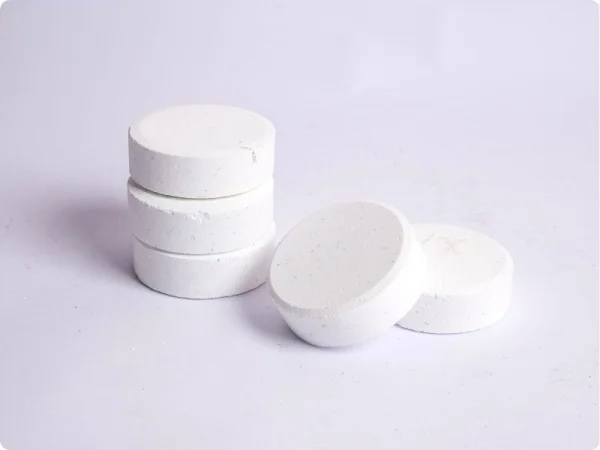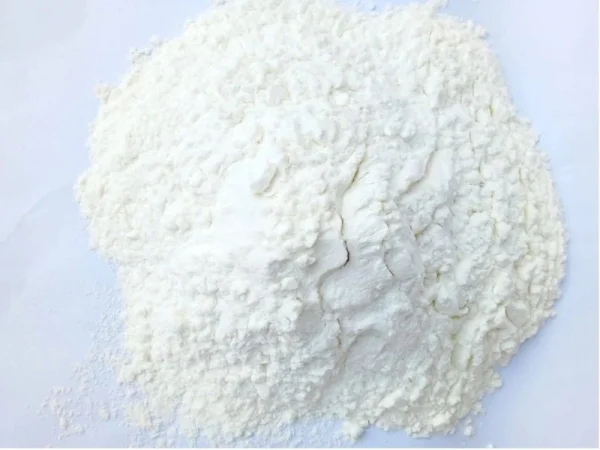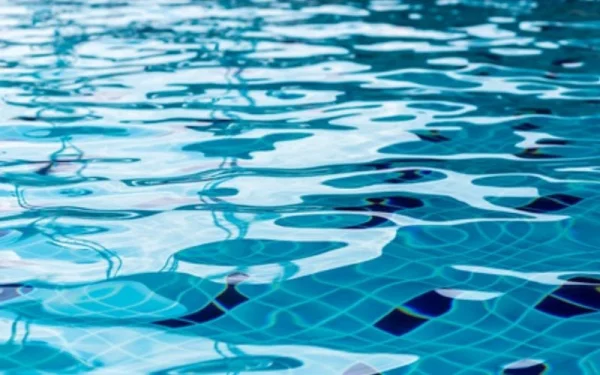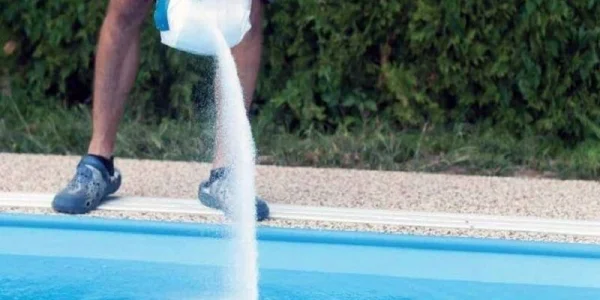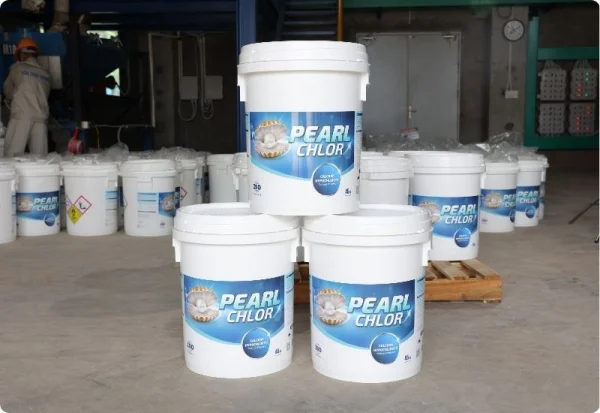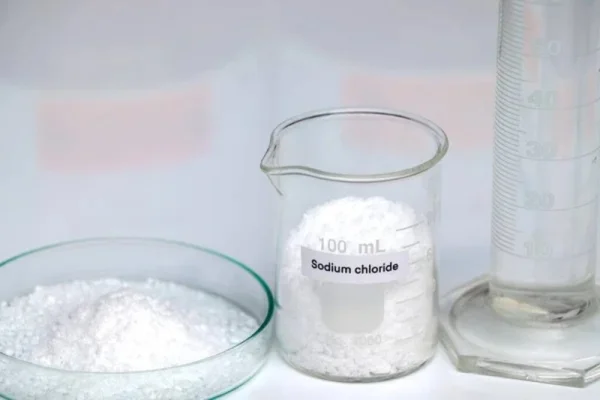
Swimming pools offer endless fun and relaxation during the warm seasons, but diligent care is essential to maintain a clean and healthy environment. One of the most crucial factors is maintaining the right levels of chlorine used in pools, which can be achieved using chlorine tablets. In this comprehensive guide, we'll explore the importance of chlorine in swimming pools, how to determine the appropriate number of chlorine tablets, and expert tips for achieving a well-balanced pool.
Understanding Chlorine and Its Role in Swimming Pools
Chlorine used in pools is a highly effective disinfectant that kills disease-causing pathogens and prevents the growth of algae and other unwanted organisms. When added to pool water, chlorine reacts with organic matter, such as sweat, urine, and other contaminants, to form chloramines. These chloramines are what cause the distinct "chlorine" odor often associated with swimming pools.
Chlorine used in pools works by disrupting the cell walls of microorganisms, making them unable to function and reproduce. This process is crucial for maintaining a safe and healthy swimming environment, as it prevents the spread of waterborne illnesses and minimizes the risk of infection for swimmers.
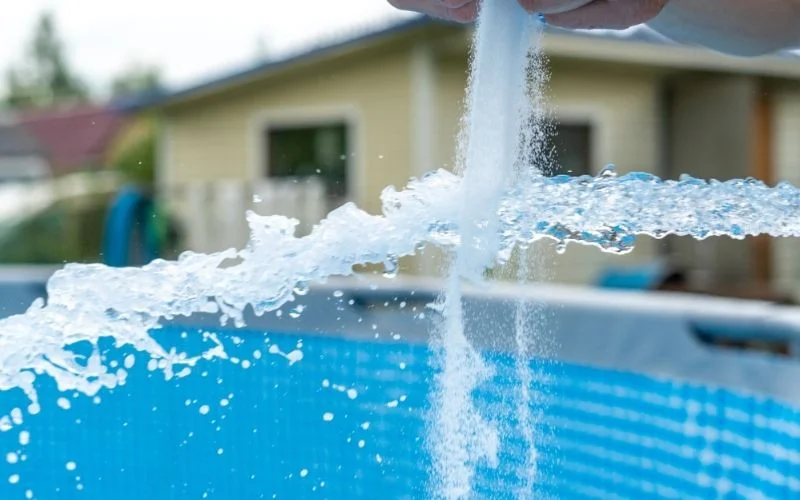
Understanding Chlorine and Its Role in Swimming Pools
Factors Affecting Chlorine Tablet Dosage
The amount of chlorine used in pools depends on several factors, including pool size, bather load (the number of people using the pool), water temperature, and the presence of organic matter. These variables can significantly impact the chlorine demand and the rate at which it is consumed.
Pool Size: Larger pools require higher quantities of chlorine to achieve the desired level of disinfection. Bather Load: The more people using the pool, the higher the concentration of organic matter (e.g., sweat, urine, and skin cells), which can quickly deplete chlorine levels. Water Temperature: Warmer water temperatures can accelerate the dissipation of chlorine, necessitating higher dosages to maintain adequate levels. Organic Matter: The presence of organic matter, such as leaves, dirt, or other debris, can consume chlorine more rapidly, requiring higher dosages to compensate.
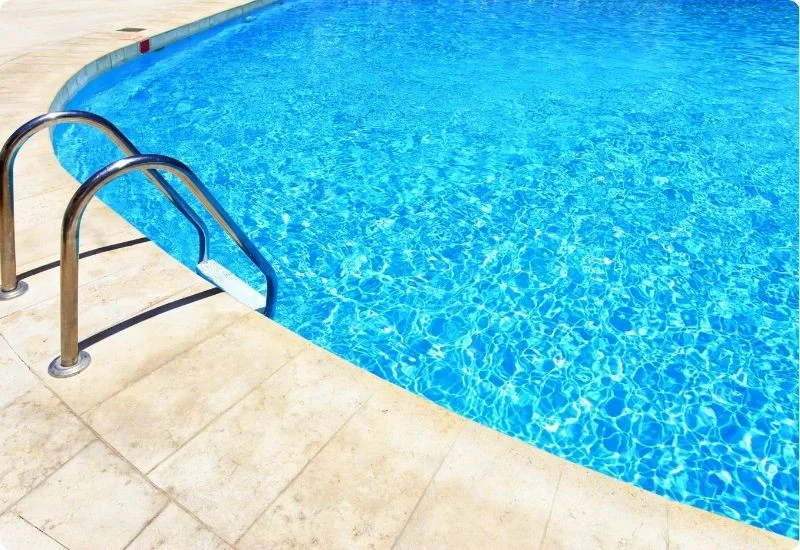
Factors Affecting Chlorine Tablet Dosage
Determining the Ideal Chlorine Level
The ideal chlorine level for swimming pools is typically between 1.0 and 3.0 parts per million (ppm). This range of chlorine used in pools is considered safe and effective for disinfecting pool water while minimizing potential health risks associated with excessive chlorine exposure.
It's essential to regularly test the chlorine levels in your pool using a reliable test kit or by consulting with a professional pool service provider. Maintaining the proper chlorine levels not only ensures the safety of swimmers but also helps prevent the growth of algae, which can turn the water green and make it unsuitable for swimming.
Calculating Chlorine Tablet Dosage
To accurately calculate the required dosage of chlorine tablets for your swimming pool, you'll need to consider the pool's volume and the desired chlorine level. Most chlorine used in pools, in tablet form, is designed to provide a specific amount of chlorine per tablet, typically ranging from 0.5 to 3.0 ppm per tablet.
Here's a general formula to calculate the number of chlorine tablets needed:
Number of tablets = (Desired chlorine level (ppm) × Pool volume (gallons)) / Chlorine yield per tablet
For example, if you have a 20,000-gallon pool and want to raise the chlorine level by 2.0 ppm using chlorine tablets that yield 1.0 ppm per tablet, the calculation would be:
Number of tablets = (2.0 ppm × 20,000 gallons) / 1.0 ppm per tablet Number of tablets = 40,000 / 1.0 Number of tablets = 40
It's important to note that this calculation is a rough estimate, and actual dosages may vary depending on factors such as water chemistry, temperature, and bather load. It's recommended to consult with a pool professional or follow the manufacturer's guidelines for specific dosage recommendations.
Adjusting Chlorine Levels
If your pool's chlorine levels are too high or too low, there are several methods to adjust them accordingly:
- Raising Chlorine Levels:
- Add additional chlorine tablets or granular chlorine products to the pool according to the calculated dosage.
- Ensure proper circulation and filtration to distribute the chlorine evenly throughout the pool water.
- Lowering Chlorine Levels:
- Stop adding chlorine and allow the existing chlorine to dissipate naturally through sunlight exposure and water circulation.
- Consider partially draining and refilling the pool with fresh water to dilute the chlorine concentration.
- Use a chlorine neutralizer product, such as sodium thiosulfate, following the manufacturer's instructions carefully.
Regular monitoring and adjustment of chlorine levels are essential to maintain a safe and enjoyable swimming environment.
Tips for Maintaining Balanced Chlorine Levels
While adding chlorine is essential, it's not the only step to maintaining a healthy pool. Here are some key tips for achieving and maintaining balanced chlorine levels in your pool:
- Test Regularly: Conduct chlorine level tests at least twice a week, or more frequently during periods of heavy use or extreme weather conditions.
- Follow Manufacturer's Instructions: Carefully read and follow the instructions provided by the chlorine product manufacturer for proper dosage and application methods.
- Maintain Proper Circulation and Filtration: Ensure that your pool's circulation and filtration systems are functioning correctly to distribute chlorine evenly throughout the water.
- Shock Treatment: Periodically "shock" the pool by adding a higher dose of chlorine to oxidize organic matter and eliminate chloramines, which can cause eye and skin irritation.
- Consider Stabilizers: Using a chlorine stabilizer, such as cyanuric acid, can help protect chlorine from being degraded by UV rays, allowing for more efficient and consistent disinfection.
- Adjust pH Levels: Maintain the pool's pH levels between 7.2 and 7.8 for optimal chlorine effectiveness and to prevent eye and skin irritation.
- Protect from Sunlight: Prolonged exposure to direct sunlight can accelerate the degradation of chlorine. Consider putting a pool cover on when the pool is not being used.
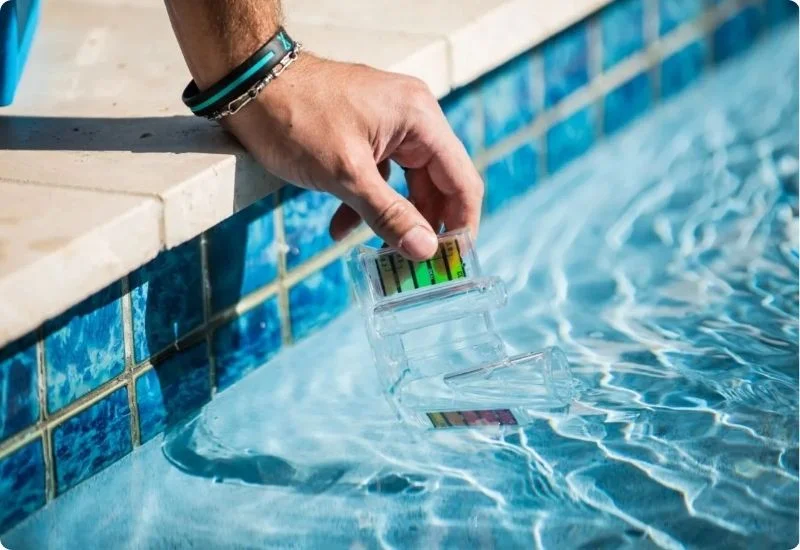
Tips for Maintaining Balanced Chlorine Levels
Safety Measures for Handling Chlorine Used in Pools
Chlorine used in pools is a powerful oxidizing agent and should be handled with care to avoid potential hazards. When working with chlorine tablets, it's essential to follow these safety precautions:
- Read and follow the manufacturer's safety instructions and warnings.
- Use proper personal protective equipment (PPE), such as gloves, goggles, and a respirator, when handling chlorine tablets.
- Store chlorine tablets in a cool, dry, and well-ventilated area, away from direct sunlight, heat sources, and incompatible materials.
- Avoid mixing chlorine tablets with other chemicals, as this can produce toxic gases or cause dangerous reactions.
- Keep chlorine out of reach of children and pets.
- Dispose of empty chlorine containers and residues according to local regulations.
By following these safety guidelines, you can ensure the safe and responsible handling of chlorine used in pools, minimizing the risk of accidents or exposure.
Conclusion
Chlorine used in pools plays a crucial role in maintaining the cleanliness and safety of swimming pools. By understanding the factors that affect chlorine levels, calculating the appropriate dosage, and following best practices for maintaining balanced chlorine concentrations, pool owners and operators can create a healthy and enjoyable swimming environment for all. Regular monitoring, proper handling, and adherence to safety protocols are essential for the responsible use of chlorine in swimming pools. With the right knowledge and precautions, chlorine can be an effective and reliable disinfectant, ensuring a safe and enjoyable swimming experience for everyone.
Related Articles
Safeguarding Your Family's Health with Chlorine Tablets for Drinking Water
Disinfecting water is crucial to eliminate harmful pathogens and ensure safe consumption. Among the ...
PAC Powder: The Versatile Solution for Water Treatment
PAC powder , short for Poly Aluminium Chloride powder, has emerged as a game-changer in the field of ...
Liquid Chlorine vs Tablets - Which is Better?
Maintaining a clean and safe swimming pool is crucial for an enjoyable and healthy swimming ...
The difference between chlorine powder and chlorine pellets in wastewater and swimming pool water treatment
On mentioning kinds of chemicals, chlorine powder and chlorine pellets are the two most popular ...
Dong A Chemical – Global Chlorine Supplier
Dong A Chemical - Manufacturer and Global Supplier of Chlorine. Owning a large-scale production ...
Compared Calcium Hypochlorite to Other Chlorine-based Disinfectants
Calcium hypochlorite is one of the most commonly used chlorine-based disinfectants. Chlorine-based ...

